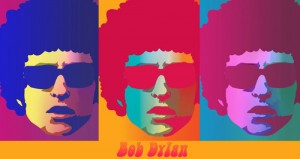
by CJ Verburg
20 Feet From Stardom is an inspiring, heart-wrenching film about those unsung heroines known as backup or background singers. It takes us behind the scenes with a dozen or so of the brilliant and fiercely dedicated African-American women who propelled 20th-century soul and rock-&-roll bands to success.
Watching it left me pondering that famous line of Andy Warhol’s: “In the future, everyone will be world-famous for 15 minutes.” One of the film’s most sobering stretches is a parade of album covers celebrating the launch of one great backup singer after another into her long-awaited solo career. Most of them sank without a ripple.
Warhol’s observation has popped into my head lately like the mystical answer from a Magic 8-Ball as I’ve read the newest data about traditional publishing vs. self-publishing, author expectations vs. author satisfaction. It’s a remark so often quoted and misquoted that it’s become a cliche–verbal Muzak we don’t really hear anymore. Back in 1968, when it first spread through the so-called counterculture, it struck shivers into me and many other aspiring artists, like an eerily prescient fortune cookie.

Already the news media were transforming the nature of fame. (Media was still plural then; so was data.) We had thought of fame as a magic doorway or bridge: Once you reached it, you were IN. Work really hard, be true to your heart and your craft, and you’ll arrive. Then you can sit back and relax, as the airlines say, and live happily ever after.
A number of people who boarded the gravy train early still believe this. 20 Feet From Stardom is a powerful reminder that for most striving artists, whose talent and hard work aren’t boosted by a well-timed lucky break, it’s not that simple.
Over the next 45 years, as lifelong careers and even regular paying jobs thinned out, and more and more people turned to arts, sports, and entrepreneurship, success changed. Instead of a threshold you can cross into the Emerald City, it became a benchmark–a one-night motel along the Yellow Brick Road. Congratulations, you’ve arrived! Now, move on down the road.
Three recent reports from Digital Book World and Writer’s Digest emphasize what a challenge this redefinition poses for writers (and publishers) of books.
In the fall of 2013, a DBW article by lead writer and Queens College sociologist Dana Beth Weinberg announced an ironic finding. Whether an author is self-published, traditionally published, or both (“hybrid”), s/he is dissatisfied with the results. Regarding “everything from the royalty rates hybrid authors receive when they traditionally publish (7.9% are very satisfied) to the number of copies sold by self-publishing authors (4.6% are very satisfied), authors are generally unhappy.” Those whose books are traditionally published tend to believe they’d have done better if they had self-published; while self-published authors think their books would have done better if traditionally published. The grass is greener on the other side of the fence? More like: Hey! I ran a great race, led the pack across the finish line . . . Where’s my trophy?
In December, Weinberg reported that income remains a big source of dissatisfaction. The much-touted Cinderella stories of authors such as Lisa Genova, E.L. James, and Gillian Flynn remain fairy tales for the vast majority of book writers. “Few authors are getting rich off of their writing or even earning enough from their writing to quit their day jobs.”
This past week, Weinberg unveiled findings from the 2014 Digital Book World and Writer’s Digest Survey regarding authors’ expectations: “Authors, especially not-yet-published authors, believe that publishers will provide us with market expertise and distributional reach that we don’t have on our own and that we have greater chances of reaching fans and stardom if we go the traditional route.” As the previous survey data show, however, fans and stardom remain elusive no matter how a book is published.

At the same time, all over the online network I’m hearing from writers who’ve had a modest hit or two and hope for another one soon, as well as writers who, while not famous, are earning enough from their books to keep the wolf from the door. Most of these are either self-help/how-to authors or series authors of genre fiction: mystery, romance, thrillers.
A leitmotif in 20 Feet from Stardom is that talent and commitment aren’t enough to make a star; it also takes a powerful ego, ambition, and tenacity, bolstered by good luck. For writers, the democratization of self-publishing is luck that cuts both ways. While it has granted many an aspirant’s wish to see her or his words between covers (literal or digital), it’s also swamped the market: In 2012 alone, more than 390,000 new books were published. In the 21st century, how many writers will show the combination of genius, ferocity, and timing to blast out of the shadows into the spotlight?
How do you define success for yourself? Will you be frustrated and disappointed as long as there are other writers who earn more fame and money than you do? Is it satisfying enough to see your words in print, and to know that people you’ve never met are paying to read them?
The backup singers in 20 Feet From Stardom all talk about the thrill of making great music and the synergy of collaboration, even if they’d rather be the star up front. For 21st-century writers, the most probable and practical approach to success may be to enjoy surfing each wave of recognition when it rolls in, large or small, and then enjoy the hard work of paddling out of sight with the rest of the crowd until the next wave rises.
